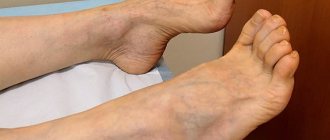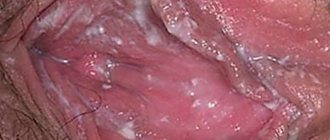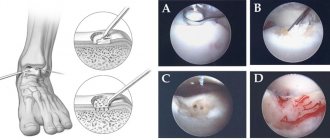The reason may be an excessive load on the nervous system, which is simply not able to process everything. It is important that a person has someone to share his problem of gender independence with. Health should come first!
For some, loud screaming or crying helps, for others, long walks or sleep. If after this the patient begins to feel better, then full treatment is not required. If your health only worsens, this indicates that you need to see a doctor to solve psychological problems. The advice to you from experts is to undergo a course of treatment at the center.
Causes of a nervous breakdown
A breakdown is a defensive reaction to the fact that a person is overloaded and needs emergency help due to an external factor. A doctor should consult; the syndrome is increasingly being called acute.
The reasons are stress that regularly affects our organs or short-term shock.
Everyone falls into one group or another. People are often prone to:
- are constantly being thinned out for events that have happened to them or are about to happen in the future;
- increased desire to work;
- cannot improve relationships in the family or at work;
- with low self-esteem;
- cancer patients;
- those who are facing serious changes;
- young parents who just had children;
- experienced the loss of a loved one;
- failures in personal relationships or relationships with parents;
- lack of money for a normal existence;
- job loss;
- responsibility that cannot be handled;
- anxiety.
A breakdown begins due to negative events, but problems can begin after major events - a wedding, a move, a new job, the birth of a first child.
Men have varying degrees of stress resistance. It’s easy for one to survive life’s problems, while the other is overwhelmed by their appearance and begins to show aggression.
While growing up, a child faces many challenges, including teenage stress. Stress is a common cause of mental illness among adolescents. If you do not provide the child with proper support during adolescence, then everything can end with a nervous disease at a more mature age, which is practically untreatable.
If parents notice drastic changes in a teenager’s behavior—he changed his hobbies, stopped being interested in things that had been dear to him for a long time—then this indicates some problems.
You shouldn’t immediately start pestering your child with questions about love, problems at school or with drugs; you need to get advice from a teenage psychologist. About how to identify a disorder by symptoms, how to help a child survive a difficult period.
Let's take a closer look at this.
Signs of mental disorders in teenagers
It is during adolescence that many mental illnesses begin to form, including schizophrenia and various types of psychoses.
Signs of such disorders include the following symptoms:
- the child has a new hobby to which he devotes all his time, but there is no success;
- abruptly abandoned old hobbies;
- began to do poorly at school when he had previously achieved significant success;
- I lost interest in everything I was previously passionate about.
But these symptoms do not 100% indicate mental disorders in adolescents. Perhaps this is how the accentuation of character manifests itself, which we will discuss in the following sections.
Symptoms
Symptoms of mental disorders in adolescents aged 12-18 years are manifested by the following features:
- sudden changes in mood, aggressiveness, conflicts with parents, teachers and other children, impulsiveness, melancholy, anxiety, inconsistency;
- disdainful attitude towards adults;
- excessive self-criticism or, on the contrary, excessive self-confidence;
- explosive reaction to outside advice and criticism;
- sensitivity is combined with callousness, the teenager is shy, but at the same time very irritated;
- refusal to obey generally accepted rules;
- schizoid;
- refusal of any guardianship.
If you notice only one of the points in your child’s behavior, then you don’t need to worry, just talk to him and find out the reason for the change.
Mental disorders in adolescents are indicated by a combination of several or all of the following symptoms.
Should I contact a specialist?
Parents usually prefer not to seek advice from a teenage psychologist. Some people think that it is a shame to take a child to a shrink, or that this will only worsen the situation, and the child will withdraw more into himself, lose trust in his parents, and so on.
In fact, it is necessary to contact a specialist.
Today, many psychologists work anonymously, that is, no one at school will know about a teenager’s visit to a doctor, and he may not even say his name.
To understand whether it is necessary to visit a psychologist in a particular case, answer a few questions:
- The above describes the signs of mental disorders in adolescents. Remember how dramatically the child has changed. If everything is fine in the family, there are no quarrels or sudden changes (divorce, death of a relative, etc.), and changes have become noticeable, then it is difficult to do without a psychologist. If the child smoothly switched to other interests or abruptly, but not everything is going smoothly in the family, then these symptoms may be an accentuation of character or an expression (involuntary) of internal experiences.
- Pay attention to your teen's sleep and appetite. If a child does not sleep well and refuses to eat, then it is worth visiting a specialist.
- If a child is in a long-term depressed state, he is not interested in anything, delusions and hallucinations appear, then urgently seek help from a professional.
Here I would like to note that many parents confuse melancholy in a teenager, which is typical for adolescence, with depression .
If, apart from this condition, nothing else bothers the child (he eats and sleeps as before, has not lost interest in his hobbies, and so on), then this is simply a difficult age threshold, which good parents themselves will help to overcome. Spend more time with your child, talk, but don’t “torture” him if he doesn’t like a topic, walk together, listen to him. During adolescence, even a simple hug will help.
If a teenager himself understands that something is wrong with him and tries to get rid of this condition and return life to its previous course, then this is a good sign. Most likely, he has a simple neurosis due to adolescence, study, relationships with the opposite sex, and the like.
If a serious mental illness is planned, then the teenager will perceive the new self calmly, and he will not have the desire to fix anything. There are specific disorders in the way of thinking of a teenager, but they are almost impossible to notice with an unprofessional eye.
To exclude or confirm a mental disorder in a teenager leading to a serious illness, it is still recommended to consult a psychologist.
If the specialist does not see any warning signs, then you can go home with peace of mind and a few tips from a professional. If alarming signals are detected, the doctor will help adjust the situation at home by talking with parents and other family members.
The specialist will also help the child learn to be in school and other public places with minimal psychological trauma.
We propose to consider the question of what mental disorders occur most often in adolescents.
Character accentuation and psychopathy
Only a professional psychologist who practices working with children and adolescents can understand what is happening to a teenager - character accentuation or psychopathy, since the line between the concepts is very thin.
During accentuation, some character traits begin to clearly sharpen, and by external signs this may resemble the picture of the development of psychopathy.
The first step is to make sure there is a normal social environment at home. As a rule, adolescents are less likely to suffer from psychopathy if their family is prosperous.
The diagnosis must be made carefully and can only be reported to the teenager’s parents and teachers. At the same time, the psychologist must explain to the parties the difference between character accentuation and psychopathy, so as not to accidentally label the teenager as “psycho.”
Melancholy
When a teenager begins to experience hormonal changes, he changes his behavior. A melancholic state is the norm of adolescence, and should not be confused with depression.
The first signs of melancholy may be a teenager’s complaints about a restless state of mind. He withdraws into himself against this background. There may also be attacks of aggression, including those directed at oneself.
Young people in this state are often disappointed in themselves. At such moments, a teenager should not be left alone. The world loses color for him, it seems empty and worthless, in this state many think about suicide, and some even attempt to commit suicide. The teenager thinks that no one needs him.
Signs of melancholy
If you notice at least half of the listed signs of melancholy, then immediately contact a specialist.
Symptoms include the following changes:
- vulnerability, tears even out of nowhere;
- mood changes for no reason;
- self-isolation, closure;
- frequent attacks of aggression over trifles;
- insomnia;
- excessive appetite or lack thereof;
- decline in school performance;
- constant fatigue, malaise.
Affective insanity
The picture of the development of such a mental disorder in a teenager is very similar to melancholy, but is no longer the norm during adolescence.
The main danger of the disorder is a crime of law against the background of depression, and also not an attempt at suicide, but its real possibility.
It is not easy to distinguish melancholy from manic-depressive psychosis.
Please note that in the first case, the teenager’s mood often changes, and in the second, he remains in a manic mood for some time, that is, he is passionate about something, cheerful, full of energy and plans, and separation from activities leads to aggression.
A manic mood often changes to a depressive one - the collapse of all hopes, bad memories, dissatisfaction with life and oneself. It is very difficult to pull a teenager out of such a state.
If you notice such symptoms in your child, then immediately take him to a specialist.
Schizophrenia
This disorder is very similar to manic-depressive psychosis. All the symptoms coincide - at first the mood is manic, enthusiastic, and then prolonged depression begins. There is a difference, and it is the main thing - with schizophrenia, panic attacks, delirium, and hallucinations are possible.
Summarize
Problems in adolescence are an integral part of growing up.
If you see that something is going on with your child, do not ignore it, thinking that adolescence will pass on its own.
If you do not help a teenager during this difficult time for him, the consequences can be very dire: from the development of a serious mental illness to the child’s suicide.
Source
WHO. Mental disorders in children and adolescents
WHO. Suicide prevention. Reference Guides
Where to turn for help when you urgently need to talk, but it’s difficult to get to a psychologist or dial a helpline number.
Here is a selection of free services that provide online help and are staffed by specialists and trained volunteers. These are resources where you are not afraid to talk about difficulties.
Internet service for emergency psychological assistance of the Ministry of Emergency Situations of Russia
Who created: Ministry of Emergency Situations of the Russian Federation.
A free psychological assistance service where you can get a one-time consultation or register and create a personal account to communicate with a personal consultant. Psychodiagnostic testing is carried out in your personal account; the consultant recommends exercises to cope with the problem. Plus, the site has a section with articles from service consultants.
Hotline phone number: 8-499-216-50-50.
Ask for help
Help is at hand
Who created: the organization “Doctors for Children”, which supports families and protects the rights of children.
Supporting teenagers and children in difficult situations. The project website has two sections: for children from 6 to 12 years old and for teenagers. They are slightly different, but the main thing is the ability to get advice from a psychologist via chat, write a letter and find phone numbers to call. The chat is open from 11:00 to 23:00 Moscow time.
The project has a group on the VKontakte social network.
Ask for help
Your territory
Who created: the “Your Territory” foundation, which specializes in protecting children’s rights.
Another online help service for teenagers, where you can talk about everything that worries them during adolescence.
The consultant works from 15:00 to 3:00 - just after school ends, and at a time when unnecessary thoughts enter your head.
The project also has a group on the VKontakte social network.
Ask for help
Psychological assistance service
Who created: the state budgetary institution “Moscow Service for Psychological Assistance to the Population.”
Remote counseling is provided not only for Moscow residents. Consultations are conducted online (upon prior request), by email, and in the psychological support forum.
Ask for help
Helpline
Who created: Fund to support children in difficult life situations.
Both adults and children can ask questions on the site. If you don’t have the strength to call, leave a message to the online consultant, and the answer will be sent by email.
A single all-Russian helpline for children, teenagers and their parents: 8-800-2000-122.
Ask for help
I'm a parent
Who created: Fund to support children in difficult life situations.
Online consultations on parenting and difficult situations in relationships with children. Questions are published on the website, but consultations are anonymous.
Ask for help
Read also:
- Consultation with a specialist. Prevention of mental disorders
- Mental health. How to improve
- Teenage drug addiction and causes of drug addiction
- On the activities of Rospotrebnadzor to prevent suicide among children and adolescents
- WHO. Suicides can be prevented
Signs and symptoms of a nervous breakdown
Symptoms and signs of a nervous breakdown, depending on the type of disorder, have common symptoms that are characteristic of the types of breakdowns. Among the consequences:
- lack of appetite, sleep, energy;
- constant irritability, anxiety, nervousness;
- the appearance of negative thoughts;
- fear of tomorrow;
- change in performance;
- constant desire to sleep;
- poor concentration;
- memory problems;
- negative thoughts;
- manifestation of apathy;
- headache;
- pressure;
- changes in mood, anxiety;
- panic attacks, fatigue;
- problems with the cardiovascular system;
- phobias.
A person’s behavior changes greatly, but the disease affects all organs. The disease is accompanied by symptoms: headache, shortness of breath, heart problems, poor appetite, blood pressure fluctuations, and mental changes. It is advisable to contact a psychologist.
Chemistry of stress
The body's response to stress is controlled by the hypothalamus and adrenal glands. When detecting a stressful situation, the body releases certain hormones. Adrenaline and norepinephrine are produced in the adrenal glands at the first sign of danger. It increases during anxiety and shock, causing the heart rate to increase and the pupils to dilate.
Norepinephrine is released in any shock situations. Its action is associated with an increase in blood pressure.
Cortisol levels rise during extreme situations or physical activity. In small doses it does not affect the body. But long-term exposure to this hormone causes damage to the brain, literally shrinking it in size. High amounts of cortisol cause a loss of synaptic connections between neurons and a shrinkage of the prefrontal cortex, which regulates concentration, decision-making, judgment and social interaction.
Prolactin especially affects women whose target organ is the mammary glands. In a situation of severe stress, the release of this hormone begins, as a result of which metabolic problems begin.
Corticoliberin activates the center of fear and anxiety, causes anorexia, and increases blood pressure.
Sign up for a consultation
Diagnosis of nervous breakdowns
Development occurs at the moment when the patient is simply no longer able to bear the load. The psyche simply becomes uncomfortable working in the same conditions; it asks for possible methods of help. And a person tolerates everything that happens to him, although the state has already reached its peak. Emotions are overwhelming, anything can be expected at any moment. Explosions occur, although everything could be fine for many years. But a critical moment has begun, everything needs to be corrected so that your organs no longer experience this feeling.
It’s all because of the reason that was the beginning of the occurrence. The tank was filling very slowly, but surely, and at one point it simply exploded from overfilling and would not be able to work.
There are two models of behavior in a difficult situation:
- Explode for any reason. At the same time, the patient splashes out his emotions and shows indignation. Strong scandals and conflict situations are characteristic of this type and the reasons for divorce.
- Accumulate all the grievances in yourself, like in a big vessel. He endures all insults until the last moment. Apathy towards everything, a depressive state, and a reluctance to communicate with anyone may begin. A mental problem begins to appear, if of course it was not there before.
But how can we avoid the danger of overfilling that same vessel and cope with the consequences? You can avoid this by becoming aware of your feelings, emotions, experiencing and accepting them.
What happens if a neurotic disorder is not treated?
Neuroses can cause complications if left untreated. Many people ignore therapy and do not go to doctors. Post-Soviet stereotypes that going to a psychotherapist is shameful still live in people’s heads. Such negligence entails irreversible changes in the psyche.
What happens if a neurotic disorder is not treated:
- increased symptoms;
- the patient becomes hysterical and hypersusceptible;
- self-esteem suffers;
- other chronic diseases appear;
- the risk of catching a cold increases;
- the formation of an explosive personality that does not tolerate returns, is aggressive, and concentrates only on the negative.
A person becomes a hypochondriac, his personality is destroyed. The last stage is caused by complete apathy, the person does not get out of bed, and may refuse food. The patient is no longer able to do without medications or control his emotions. High risk of suicide. It is extremely difficult to treat this condition; it can lead to more serious mental pathologies. You cannot do without long-term psychotherapy, taking medications and staying in a neurosis clinic.
In a hospital or at home?
It is easier to prevent a breakdown than to treat it. During a breakdown, not everyone knows how to calm a person down. Just a few years ago, to calm the patient, they poured a bucket of cold water on him, if, of course, there was cold water nearby. If this does not help, you need to contact an ambulance.
Screaming will not help; a person is not able to control his actions. A raised voice can only make things worse, which should not be allowed.
Everyone decides for themselves where it is better to treat the disease - in a hospital or at home. If, for example, the breakdown was caused by the situation in the family, then it would be logical to send the patient to the hospital. The psyche may simply not cope if this happens again.
In other situations, having relatives nearby can have a positive effect on the patient’s well-being. Any drug is prescribed after a comprehensive examination. The patient must be under the supervision of a doctor; many drugs can be addictive. After treatment, it takes another month to recover.
But vice versa, it is better to treat a nervous breakdown at home in women and men. We need to understand what led to this state. If, for example, constant tension arises at work, you need to take a vacation or quit altogether, there is nothing more valuable than health. If the cause is overwork, you need to build a more gentle schedule for yourself, which will include 8 hours of sleep, a walk in the fresh air during the day, and proper nutrition.
When treating at home, you need to consult with a therapist to draw up an action plan. Treatment within the walls of the home is aimed at relaxation and distracting the patient from the problem. The method is safe for life and health.
Consequences
The emotional state has a direct connection with the physical state. If a nervous breakdown has been detected, symptoms begin to appear: problems with the heart, problems with the digestive system, dizziness. A breakdown may begin in a patient who has attempted to commit suicide.
If the problem is not diagnosed, it begins to accumulate like a snow globe. The patient begins to have communication problems, becomes more hot-tempered, irritable, and his psychological state worsens.
A breakdown leads to drug addiction or taking excessive amounts of alcohol, and promiscuous sexual relations. The search begins for a method of discharge, getting rid of all the negativity that has accumulated in the form of an internal factor. It is necessary to get help from a psychotherapist in time.
Specifics of treatment
Nervous breakdowns do not appear out of nowhere. This is a long-term disease that has not been treated for years, or prolonged stress that the patient has experienced. To get rid of an ordinary nervous breakdown, you need to reconsider your life, get rid of the cause - treat the underlying disease, limit your communication with those who bring you to such a state.
This lengthy process can take a month or even more. There are medications that will help the patient during periods of treatment. Those who are treated at home without a doctor’s prescription cannot even imagine the harm they are causing to their body.
The disorder appears for various reasons; the treatment of a nervous breakdown, especially in women, must be approached in a comprehensive manner.
Stages of stress
- 1. Anxiety. A person is scared, a signal is sent to the hypothalamus - there is an active production of adrenaline, cortisol, norepinephrine. As a result, the pulse and breathing increase.
- 2. Adaptation. The body is trying to bounce back and normalize its functions. If it doesn’t work out, then it goes to the third stage.
- 3. Exhaustion. The body does not have the strength to fight on its own, so nervous breakdowns, depression, and other diseases develop and manifest themselves. A specialist should be involved in getting out of this state.
Non-drug ways to deal with a nervous breakdown
- Sports activities. Sports exercises will help you calm down and recharge yourself with positivity. This method has not harmed more than one patient. Sport improves heart function, brain function, and sleep.
- Relaxation programs: meditation, yoga, body massage. Relieve tension, relax the body, get rid of negative thoughts. Do it at least 2 times a week.
- Maintaining a healthy lifestyle. No matter how strange it may sound, it helps. Alcohol, drugs, coffee - all this affects the nervous system.
- Proper nutrition, essential vitamins.
With the help of drugs and medicines
- Medicine offers drugs with sedative effects. Dizziness and heart problems can be treated with medication. These are not pills that will cure your relapse, but they will make you feel much better. Medicinal use is one of the most effective.
- Preparations based on plant extracts have a calming component.
- Vitamins. When you are stressed, you especially need to enrich yourself with vitamins such as group B, vitamin E, magnesium, calcium, so that depletion does not occur.
- Biologically active additives. They contain extracts of soothing plants.
- Antidepressants. Strong drugs that should never be used without a prescription. They have many side effects, so they are prescribed in emergency situations.
What is a neurotic disorder
What is a neurotic disorder? It is a heterogeneous group of dysfunctions that arise as a result of acute or chronic psychological trauma. Symptoms are varied, but maladaptation, phobias, asthenia, obsessions and somatovegetative disturbances are always noted. A person's physical and mental abilities are temporarily weakened. Self-awareness and criticism persist. The diagnosis is made based on complaints, medical history and the person’s life history. To eliminate the problem, they resort to psychotherapy and medication.
Neurotic disorder is characterized
Doctors mean by neuroses a group of pathologies that arise due to the influence of mental trauma. A neurotic disorder is characterized by a deterioration in well-being, mood swings are noted, and somato-vegetative symptoms appear. In severe cases, suicidal thoughts are possible.
Restoration of the nervous system after a long course of treatment
In order to consolidate the therapeutic effect, you need to completely reconsider your lifestyle. Particular attention should be paid to nutrition, making sure that the diet contains plenty of fruits, fiber and carbohydrates. In addition, take vitamins regularly after consulting your doctor. Pay attention to reducing the amount of coffee and tea you drink, replacing it with juice. Eliminate bad habits from your life. If a person plays sports every day, then his health will be much better. If possible, go on vacation.
How to get out of this state? Will it take a lot of time?
– If a person understands that he has recently lived and worked at an accelerated pace, then the logical first aid would be to slow down the pace, normalize the rest regime, take a short vacation, and have a proper diet with a predominance of fruits and vegetables and easily digestible foods.
A great addition can be yoga, meditation, relaxation, pleasant communication with loved ones and pets. And for each person, recovery time is very individual.
Reproduction of CityDog.by materials is possible only with the written permission of the editors. Details here.
Photo: heroine’s archive, unsplash.com.
How to protect yourself from breakdown
The most important thing is to correctly identify the disease and begin treatment for the breakdown from any side. Unfortunately, many people accept the appearance of irritability, insomnia, bad mood and a number of other factors as a phenomenon with which absolutely everyone lives. Therefore, you should not contact a neurologist. But that's not true! It is important for your loved ones to be there at this moment when it is difficult to survive everything! Experts require that treatment be started as early as possible.
Stress is not a normal condition and must be treated! Don’t be afraid to disturb the doctor with your trivial questions - sleep disorders, mental disorders, tearfulness, forgetfulness, memory impairment, dizziness, and more. These are all points that can be resolved at the formation stage. But if you do not pay attention to them, then you can wait for clinical depression, which can only be gotten rid of with the strongest drugs, the use of certain tranquilizers.











